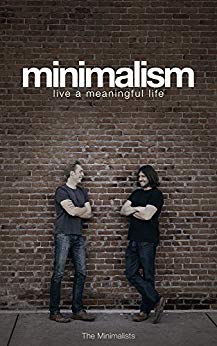

This article is an excerpt from the Shortform summary of "Minimalism" by Joshua Fields Millburn and Ryan Nicodemus. Shortform has the world's best summaries of books you should be reading.
Like this article? Sign up for a free trial here .
How do you find your career passion? How do you find work that you enjoy, and that you’re also good at? We have a complete guide here.
You won’t feel fulfilled if your life lacks passion. This is often the root cause of the empty feeling many people experience. But there are things that get in the way of discovering and pursuing your passions — starting with your work.
Work vs. Passions
How do you characterize your work? Typically people call it a job, career, or mission. A job is a daily grind, while a mission is something you feel passionate about. A career can be either or both.
Work that’s a daily grind impedes your happiness and ability to live a meaningful life.
If you’re like most people, you have a job you aren’t passionate about. We’re taught from an early age that that’s the nature of work; it’s about simply making a living, which we have a responsibility to do.
We’re taught to work hard in high school and college, doing stuff we don’t care about, so we’ll find a “good job” with reliable pay and benefits, so we can go into debt purchasing a house, car, consumer goods, etc. This process is touted as the American dream.
We’re to keep our nose to the grindstone, so one day we can retire and enjoy our lives for a few years before dying (the average lifespan of a retiree is often only three years after retirement). For 40 years or so, we trade our most precious commodity (our time) for a paycheck.
It’s true that we all need money to live — for shelter, food, clothing, medical care, etc. But beyond that, attaining the American dream won’t make you happy. For many, pursuing it saps joy and meaning from life.
The Truth About A Career
Many people expect a career to be more fulfilling than a job. They believe it’s the ticket to a meaningful life.
However, having a career often sidetracks you from that goal. The reason is that people invest in their careers to the point of assuming an identity and social status based on their job title.
Our cultural norms aid and abet this tendency. One of the first things people ask when getting acquainted is, “What do you do?” This seems innocuous, but the implied question is, “What do you do for a living?” — and you know you’ll be judged (assigned a social status) based on your occupation.
Once you believe your career is who you are, it’s difficult to give up that identity even if you come to hate your career.
(A better way to answer the “what do you do” question is to reply with what you’re passionate about. For instance, “I’m passionate about cooking; what are you passionate about?” It leads to more interesting conversations than the typical answer along the lines of “I’m a director of operations.”)
The truth is, you’re far more than your career; you have passions that you can pursue for a meaningful life.
From Career to Passion
Josuha and Ryan had conventionally successful corporate careers, but eventually they felt stressed and unhappy instead of fulfilled. So they worked harder and turned to consumerism — they bought stuff in an effort to purchase happiness. Eventually they realized this wasn’t the path to happiness — they needed to cut the excess in their lives and pursue their career passions.
To discover their career passions, they had to remove the many anchors holding them back, including the status/identity of their careers, and their lavish lifestyles and debt.
In creating and operating their website, TheMinimalists.com, they pursued their career passions and turned them into their mission. Joshua’s passion is writing, while Ryan’s is mentoring others.
Sometimes people stumble into a line of work that brings them great satisfaction. They feel they’re being paid to do what they love and they refer to their work as their mission. But they’re exceptions.
If you don’t feel grateful and passionate about your work, then you probably haven’t found your mission. The rest of this chapter is intended to help you identify, then cultivate your passions, and pursue them as your mission.
You can be passionate about almost anything (and you can have multiple passions) — as a result, any line of work can be your mission.
Some people know what they’re passionate about, but may not be pursuing it as their full-time mission. Others don’t know what they’re passionate about, or what their mission is.
Regardless of where you fall, this chapter will help you identify the anchors keeping you from discovering and cultivating your passions.
Passion Fuels More Passion
Two things characterize passionate people:
- They know what they are most passionate about (people have multiple passions) and also what else they are passionate about: what gets them into a peak state, and what gets them excited and energized.
- They turn to their career passions when feeling uninspired because passion fuels more passion. When they don’t feel like starting a new project, they focus on the aspects that get them excited. For example, the authors found that some parts of writing a book are boring, but they worked through the boring stuff by keeping an eye on the end result (what the book would mean to others), which they were passionate about.
Using what you’re passionate about to keep you focused and spark more career passion is part of discovering your mission. But first you must discover what you’re passionate about by removing your anchors.
Finding Your Career Passions
Once you’ve removed your anchors, you can focus on finding your passions.
First, consider what you’d do with your life if money weren’t an object. If you don’t know, you’re likely still being held back by some of the four anchors.
Maybe you’re afraid of what people will say if you pursue what you really want. Joshua never told people he wanted to be a writer for fear of what they might think.
Maybe you’re worried that you won’t make enough money to live on, or you’ll feel insignificant. You have to get past these fears to find your career passion.
Here are some additional questions to help you identify your passions:
- When was the last time you felt true excitement. What are five other experiences like this?
- Why were you excited each of those times?
- Which experience excited you for the longest time?
- Was there a common thread among your most exciting experiences?
Once you know what excitement looks and feels like, you can answer the question of what you’d do if you could do anything. The answer is: things that excite me. Think about the thing that excited you the most — that is probably your passion.
What would you love to do each day? What would you be obsessed by? Where do love and obsession overlap? That’s your career passion.
The next step is to figure out how to turn your passion into your mission.
Turning Your Career Passion into Your Mission
You may think, “No one is going to pay me to do X.” But in fact, someone is earning a living doing the thing you’re passionate about.
There are likely thousands of people who pursued (your) passion with determination until it became their mission. You can learn from those people.
To turn your career passion into your mission, emulate someone who is already doing it. The authors followed the examples and advice of other minimalist bloggers to become successful at it themselves. Find at least three people making a living doing what you’re passionate about. Learn from them, and then take action.
Of course, it isn’t easy. It takes action to remove your anchors, and reject social messages so you can live a meaningful life. But it’s worth it to pursue your career passions and live your mission.
———End of Preview———

Like what you just read? Read the rest of the world's best summary of "Minimalism" at Shortform . Learn the book's critical concepts in 20 minutes or less .
Here's what you'll find in our full Minimalism summary :
- What Minimalism is, in complete detail
- How to simplify your life and get rid of things you don't need
- What's holding you back from your ideal career passion
- How to take care of your body and health, the simple way






